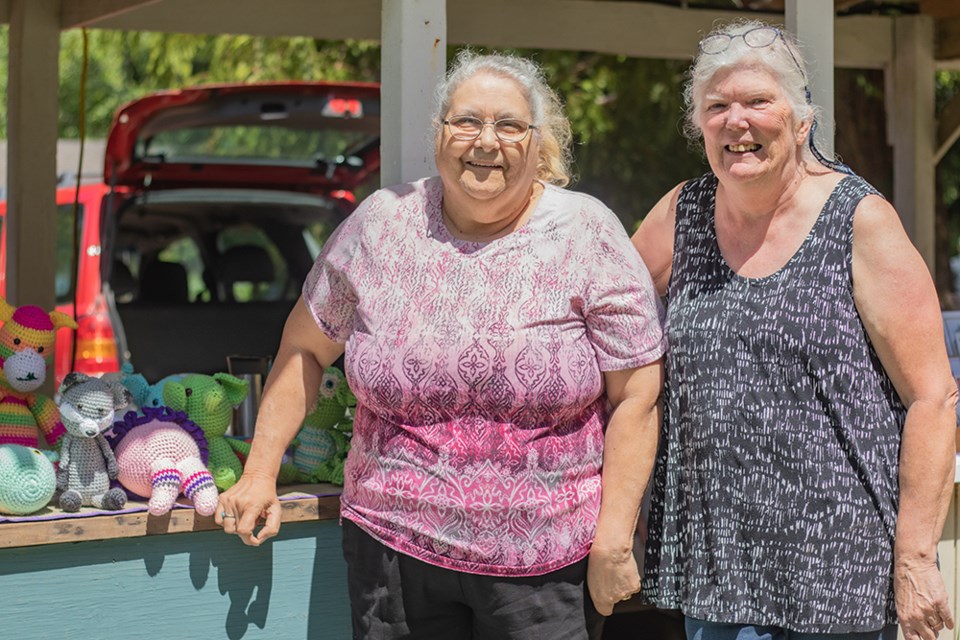In June of 2021, NDP MP Alistair MacGregor (Cowichan-Malahat-Langford) introduced Private Member’s Bill C-323 (National Strategy on Brain Injuries Act), calling on the federal government to develop a national strategy to support and improve brain injury prevention and treatment. In June 2022, he reintroduced the bill in hopes of developing a national strategy.
Although June has been Brain Injury Awareness Month in Canada for quite some time, in 2019, Deborah Dee, executive director of Powell River Brain Injury Society, requested that city mayor Dave Formosa make a proclamation recognizing the observance locally.
“[Bill C-323] will provide a framework for acquired brain injury because there’s never been one, and we’ve been working at the local, provincial level to try and get brain injury acknowledged,” said Dee. “It’s such an enigma. There is no cast, and there are no crutches.”
Acquired brain injury is more prevalent than most people know, according to Dee. About one in six will have some sort of brain injury severe enough to cause functional or cognitive change, she said.
Usually, during June, Dee and her team present at city hall and set up information booths and annual fundraisers, anything to get brain injury awareness out into the community.
“So people understand what it is, how it can happen, and how prevalent it really is,” explained Dee, “and that there is life beyond acquired brain injury.”
The last few years have looked a little different due to the pandemic, she added.
Dee reminds everyone to always wear a seatbelt and helmet and be extra careful when doing any thrill-seeking activity, such as skateboarding or diving into dark water.
“Be safe and take care of your brain,” she said.
Client-centred programming
Dee has worked with the local brain injury society for about 19 years. Before joining, her sister had suffered an acquired brain injury, so she was interested in the work when she heard about an opportunity to start the society.
Since then, she has raised visibility and awareness of acquired brain injury in the qathet region and helped well over 200 community members.
“We have a five-day-a-week drop-in centre, and we run special programming,” said Dee. “It's just been an absolutely amazing experience.”
She said it’s the challenges that keep her going, but the successes are what make it rewarding. At any given time, upwards of 100 people are using the services provided by the society. Some come in daily for specialized programming, others once a year when they’re in crisis.
Dee said the society exists to fill the gap in post-acute care. When someone goes to the hospital to be treated for a brain injury, they’re given exceptional care; in rehab, they’re also well taken care of, she added.
“Then they go into the community; there’s not really a lot of support post-acute,” said Dee. “We provide a place to help navigate the waters of ‘what do I do now?’ And we help people to understand and recognize what their limitations might be, but also to not be defined by them.”
Powell River Brain Injury Society offers many programs and services to serve its community.
“It’s very client-centred programming that we run,” explained Dee. “So if a client presents with a need or an opportunity, then we do everything we can to try and make that a realization for them.”
If someone wants to learn photography, Dee and her team will find out how comfortable they are integrating into another local group. Or, if they would prefer a group be created for them, that may be possible, especially if there is additional interest within the community.
“A lot of times with brain injury, their processing speed isn’t as fast as everyone else, and they get overloaded with information and then it’s kind of setting them up to fail,” she said. “We like to work at their speed with the skill levels they have, the processing speeds they have and go from there.”
A new awakening
As most people can’t return to their chosen careers after a brain injury, the society tries to provide vocational employment training and work experience programs, such as a booth at Powell River Farmers’ Market, selling goodies and arts and crafts.
“It’s not much, but it’s something, and it’s very good for self-esteem,” explained Dee. “It’s a boost and kind of increases quality of life.”
Through the society, Dee has helped set up individuals with work experience and meetings with folks who can provide financing. Some of those community members now have thriving small businesses.
Sometimes, it’s helping folks get back into the workforce, which might have previously felt impossible, according to Dee.
“[A community member] came in that first morning and said: ‘I can’t tell you the feeling that I had today. When I got up, I showered, shaved, looked in the mirror and thought, oh my god, I never thought this would have happened again. I’m going back to work,’” shared Dee.
A grant through the Disability Alliance of BC to paint a mural near Dairy Queen, which will depict historical snapshots of qathet, has been received by the society.
“It’s all brain injury clients who are doing the whole thing,” said Dee. “So we can really showcase the talent and the skill that people with a brain injury still have even though they’ve lost some things. Other things have awakened.”


.jpg;w=120;h=80;mode=crop)

